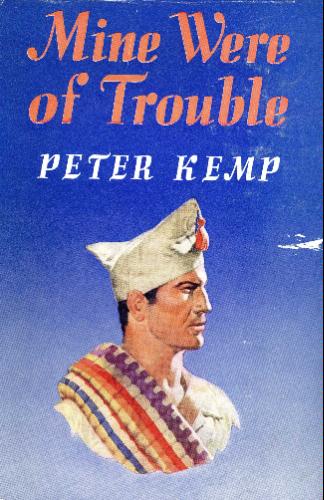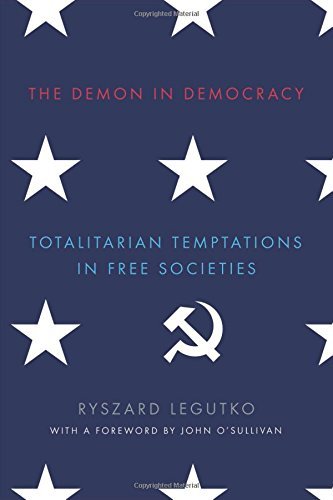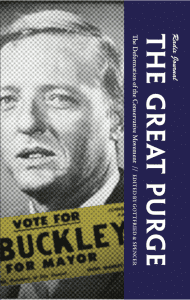
DERB’S DECEMBER (2016!) DIARY: Roll Over Ta-Nehisi Coates, I Have An Escalator Anecdote Too! (Where’s My MacArthur Grant?) Etc.
01/01/2017
The long (16,600 words) goodbye. For a black view of Obama as he departs the presidential stage, you might be moved to try the article by Ta-Nehisi Coates in the current (Jan./Feb. 2017) issue of The Atlantic. [My President Was Black]If you are so moved, best set aside an hour for the reading: Coates' piece is 16,600 words long.That’s longer than A Midsummer Night’s Dream. Supposing you have that hour to spare, it would of course be shamefully reactionary of you to give it over to one of William Shakespeare’s productions rather than to a work by Coates, who is after all the recipient of a MacArthur Foundation "genius" grant — which Shakespeare never was!

Like Obama, Coates fits precisely into some hungry receptors in the brains of many white Americans. Different receptors: Coates is not quite the Nice Black Guy. He actually comes across as rather sour and surly, although at a low and unthreatening level.
The fit must be a precise one none the less. Coates' books and articles are required reading in high schools and colleges across the nation. I am sure that at any given moment in today’s U.S.A., far more people are reading Coates than Shakespeare.
Coates' appeal is even more incomprehensible to me than Obama’s. I can at least see the attraction to others of what Obama’s selling, even though I don’t buy it myself. I can appreciate Obama’s appeal at second hand, so to speak. I don’t get Coates' appeal at all, at any hand.
A few weeks ago I did a telephone interview with an academic who was writing something about the Alt Right. We went over the usual ground amiably enough, then got stuck on something I had written somewhere that the interviewer thought was disrespectful to Coates. For some reason he thought this particular heterodoxy of mine — out of so many! — was especially flagitious.
I responded with something like:
"For goodness' sake, Coates is an utter mountebank. He has no topic other than his own blackness, which is not interesting to me. His prose is dull and humorless. He’s not well-read, has no math or science, and possesses no original insights into the human condition. His anecdotes are trivial and frequently, I suspect, bogus."

The interviewer asked how did I know all that, since I've confessed to never having gotten very far into one of Coates' pieces. I can’t recall what I said in reply, but I hope it was something about not needing to drink a whole bottle to know the wine is corked.
After this latest Coates effort I could have added that when a "piece" is 16,600 words long, not getting very far into it can still cover a lot of wordage.
Coates has attained fame and wealth in the U.S.A., though — far above anything he could have attained in a black country. Try getting him to admit that.
Escalator race stories. Ta-Nehisi Coates' best-known anecdote about the sufferings of blacks under the iron heel of White Privilege in present-day America is the escalator story told in his book Between the World and Me. Addressing his son, Coates writes:
Perhaps you remember that time we went to see Howl’s Moving Castle on the Upper West Side. You were almost 5 years old. The theater was crowded, and when we came out we rode a set of escalators down to the ground floor. As we came off, you were moving at the dawdling speed of a small child. A white woman pushed you and said, "Come on!"A rude New Yorker — who could have imagined it?
As it happens, I acquired an escalator race story of my own earlier this month. It’s just as trivially inconsequential as Coates'; but since his story got him a "genius" grant and nationwide fame, I may as well make a try for the same glitttering prizes myself.
The escalator here was one at the Lexington Avenue / 53rd Street subway station in New York City. I'd taken the downtown number six train from the Upper East Side, and was changing to the downtown E train to get to Penn Station — from the IRT to the IND, for all you in the older cohort of New York subway riders. This involves going up a long escalator.
Looking up the escalator as I mounted it, I saw that it was full, with people on every step. In accordance with escalator etiquette, which even New Yorkers generally adhere to, the riders were almost all standing at the right, leaving a clear path for more energetic types like your diarist to leg it up the left-hand side.
The only riders not standing at the right were a little group of four or five twentysomething black women, occupying the full width of the escalator and in lively conversation with each other. As I reached them I said "Excuse me," and waited for them to clear my way. They didn’t, so I just pushed my way through the group — not violently, but with some unavoidable body contact — and proceeded on up.
Their voiced reactions floated up the escalator behind me. One was particularly loud and clear. Her chosen mode was sarcasm: "WELL, AH THOTE THUH I-DE-UH OF A ESCALATOR WUZ SO’s WE COULD STAN' HE-UH AN' RAAHD …"
I bet that woman is telling the story to her friends in Coatesian terms: An evil old white Klansman violated her Civil Rights and abused her Black Body …
Yo, ladies: If you're going to ride escalators, learn the etiquette; and if you stick your bad manners in a person’s face, expect to get bad manners back. And try speaking standard English: It’s "an escalator" not "a escalator."
Could someone please pass this story on to the MacArthur Foundation for me? I don’t have their address. ?
But yes, Obama would have won. In an interview published December 26th Barack Obama claimed that if he could have run for a third term, he would have beaten Trump. [Obama Says He Would Have Defeated Trump For A Third Term, By Michael S. Schmidt, NYT, December 26, 2016 ] I think he was right.
Not that he would have got my vote. I can’t say I have ever warmed to Obama. I see no reason to add or subtract anything from the opinion I published two years ago in The Great Purge:
The U.S.A. then elected its first Affirmative-Action president, a law-school nonentity with no executive experience and nothing in his head but 1980s college-radical sociobabble and the endless rancor of the blacks.That said, I don’t think Obama was making an empty boast in that interview. His popularity in early November was the same, within polling error, as it had been just before the 2012 election. Trump was widely disliked. His thin victory margins in key states were due to Mrs Clinton’s being disliked more. There was a lot of nose-holding in this year’s election.
Deroy Murdock got to the essence of the matter, I think, in his December 25th column at the New York Post. The current devastated condition of the Democratic Party is, says Murdock, a "repudiation … not of Obama himself, but of Obamaism, today’s Democratic gospel." Obama himself remains well-liked.
A big part of that is Obama’s appeal to an old and deep-seated American ideal: the Nice Black Guy. This ideal dwells on one side of our national schizophrenia about race.
On the one hand we all know at some level that there is, as Abraham Lincoln said, "a broader difference" between us "than exists between almost any other two races." (Southerners were more blunt: google "Robert Lewis Dabney.")
On the other hand, most white people can name particular blacks they like or admire; and I’m sure the same is true in the other direction. As some white showbiz person or other — can’t find the quote — said, or sighed, of the gentlemanly black crooner Nat King Cole: "If only they were all like him!"
For a great many white Americans, although obviously not for me, Obama is a perfect fit for those mental receptor slots yearning for an attractive, unthreatening black. He'd have won easily.
The end of books. "Of making many bookes there is no end," said the Preacher. Oh yeah? It’s beginning to look as though there is an end, and it’s not far off.
Whether there is or not, bookstores are vanishing fast. A friend tells me that there is now no bookstore in New York City’s Grand Central Station. I haven’t checked, but I expect it’s true. There has for a year or so been no bookstore in the Long Island Railroad concourse at Penn Station. (I think there is still one in the Amtrak concourse.)
"Oh," people say when you grumble about this, "it’s just that books are so easy to buy online, that’s all."
Maybe; but I had a disconcerting experience just before Christmas that left me thinking there is something in the air — an invisible anti-book miasma potent enough to affect even me, as bookish a person as it is possible to be.
Disconcerting experience: It has been our family custom for twenty-plus years — since the kids were in diapers — to visit the local mega-mall the week before Christmas, to buy presents for ourselves and each other, and eat a family meal in the food court. The place has a big Barnes & Noble, and that of course is where I end up.
This year’s visit, though, there was something wrong. I browsed, but self-consciously: not just blithely browsing, as I've done all my life, but browsing while simultaneously thinking I’m browsing in a bookstore. Self-consciousness is of course the enemy of desire: I didn’t feel like buying any books at all.
However, the family would have thought it odd if I'd emerged from my Christmas Barnes & Noble visit with no books; so I concentrated, deliberated, and purchased two good-quality paperbacks, one each of nonfiction and fiction.
I had felt the icy breath of the zeitgeist on my soul, though. Without the spur of family custom to prompt me, I would have left the mall bookless. If a chronic bibliophile like me is losing interest, what future is there for books?

Middlebrow fiction of the month. So what were my two book purchases? They were Walter Isaacson’s Benjamin Franklin and Phillippa Gregory’s The White Queen.
I haven’t yet opened Isaacson’s book, which I bought on the strength of (a) having enjoyed his biography of Einstein, and (b) thinking that Franklin is an interesting guy I don’t know half as much about as I'd like to. I'll report back.
I bought The White Queen because a friend had recommended the TV miniseries of it as being the kind of thing I'd like. That was a year or so ago. I made a mental note to look up the miniseries on Netflix but never did.
Then, seeing the book on our Christmas mall trawl, I thought I'd try that instead. I’m a sucker for historical fiction, and you can’t go wrong with the late Plantagenets, as William Shakespeare amply demonstrated.
The White Queen is good well-researched historical fiction. It’s very much a woman’s book, though, framed as a first-person narrative by Elizabeth Woodville, the wife (or possibly just Number One Mistress: the history is murky) of Edward IV, a champion of the Yorkist cause — the white rose in the Wars of the Roses.

How much of a woman’s book is it? Well, I broke off reading when Mrs D called me into dinner. How was I liking my book? she asked. I said I liked it well enough, but she might like it more, as it was written by a woman for (I assume) a mostly female readership.
After dinner I picked up and commenced reading where I had left off. The very next sentence (page 152) was this one:
He takes me as he has always done, passionately, as a dry man slaking his thirst.No, it’s not all like that; and I’m a tolerant reader. I enjoyed The White Queen. If estrogen vapors rising from the pages of a book annoy you, though, try a different author.

The war lover. One book I seem to have lost in my travels and is now wellnigh unobtainable is Peter Kemp’s Mine Were of Trouble.
(Clarification of "wellnigh": Amazon has no copies available. Abebooks had just one when I looked in late December, priced $269.95, "a darn nice ex-library copy." Darn nice? For that darn price, I should darn well hope so.)
Peter Kemp (1915-93) and his autobiographical book came up in a conversation about the military virtues. "There are some guys," I said, "who really like war. They're drawn to it. They can’t stay away from it. If their country isn’t involved in any wars, they'll go to some other country that is, and sign up."
This met with some skepticism from the company (my wife, a Gen-X friend, and a couple of millennials). Could I give an example? I named Kemp. Nobody had ever heard of him. I went looking for his book in my study, but couldn’t find it. I haven’t picked it up since about 1980, several moves of residence ago, so its loss is not surprising.
Mine Were of Trouble (the title comes from a Housman poem) is an account of Kemp’s service in the Spanish Civil War of the late 1930s, in which, very unfashionably, he fought on the Francoist side until a mortar bomb blew up in his face. He was fit for combat again when WW2 broke out, performed numerous dangerous missions, and wrote a book about all that (which I haven’t read).
There is an obituary from one of the British newspapers here. It summarizes Kemp’s post-WW2 adventures thus:
He went to Hungary during the rising in 1956, nominally as the Tablet’s correspondent, and helped some students escape to Austria. He was present during the troubles in the Congo that led to its independence as Zaire; he fought intermittently in Vietnam; he visited and reported on revolutions in Central and in South America; he could even bear to revisit Albania, where he predicted further racial clashes between Albanians and Serbs.This human type, the war lover, used to be better known than it now is. Steve McQueen starred in a 1962 movie actually titled The War Lover.

If the type is going extinct, is that a good thing or a bad thing? I guess your answer depends on how dangerous a place you think the world is. I can’t say I’m a war lover — too fond of my own skin — but in broad, general outlook I’m with Housman, if not quite with Kemp.
Refusing treatment. My buboes were showing signs of misbehavior, so I ran off to the oncologist.
Backstory: I have an incurable variety of blood cancer, went through chemotherapy in 2012, have had no problems since, but need watching. Although mild by itself, my kind of cancer turns seriously, fatally nasty in a small minority of cases.
Tests were done. It was a false alarm, thank goodness, the beast just shifting in its sleep of remission, then settling back down into passivity. It did, though, get me looking up stuff on the internet. That’s what we do when we're unwell nowadays, isn’t it? This must be mighty annoying for doctors — every patient an amateur diagnostician.
What got my attention this time around in all that browsing was people who refuse treatment. A surprising number do; some of them have written books about it.
There have even been reports that most physicians refuse chemotherapy for themselves when diagnosed with something terminal, though it has to be said that those reports come mostly from outfits promoting "natural" or "spiritual" cures.
I’m a skeptic about that stuff. Temperamentally I have a high level of respect for science. I share George Orwell’s disdain for sandal-wearing vegetarians and their quack cures — homeopathy, moxibustion, anything beginning with "natural." Cancer’s "natural," isn’t it?
So my inclination is to trust the medical professionals. Yes, some skepticism is in order on that side, too; but nothing like as much as you should nurse towards people who tell you that dosing yourself with a solution of hen’s bane diluted to a strength of one molecule per cubic mile will fix your asthma.
Sure, chemotherapy is horrible. It’s getting less horrible all the time, though. More effective, too, according to my oncologist, an upbeat fellow.
He: "The pace of new discoveries is amazing! Imbruvica! Zyledig! We're getting great results! At this summer’s conference I was actually hearing the 'c' word!"
Me (puzzled): "What, 'cancer'? Isn’t that what oncologist talk about, like, all the time?"
He: "No, no: 'c' for 'cure'!"
Equipped with such a mindset, when faced with decisions about treatment I look up probabilities on the internet, feed 'em into Bayes' Theorem, and take the appropriate course of action.
Which is still, at the end of it all, either to accept or refuse the treatment on offer. When you have people who care about you and depend on you, this can’t help but be a moral conundrum.
What if I’m inclined to refuse treatment but the Mrs. urges me to accept? I could try to explain Bayes' Theorem to her, I guess.
Silver cloud, dark lining. An alternative, longer-term approach to ridding us of cancer is to fiddle with our genomes so that no-one any longer will inherit a predisposition to cancer.
Fiddling with genomes has been getting a lot of press recently. The current (January 2nd) issue of The New Yorker has a long article about editing genomes using the new CRISPR technology. The genomes of mice, for example, "to make them immune to the bacteria that cause Lyme and other tick-borne diseases." The fiddlers have malaria in their sights, too — by fiddling with mosquito genes, of course.
There’s a Faust Factor — isn’t there always? Fiddling with genomes can do harm as well as good.
The authors of a report on gene drives issued this year by the National Academy of Sciences wrote, "It is not inconceivable that rather than developing a resistant mosquito, one could develop a more susceptible mosquito capable of transmitting a specific pathogen." In other words, terrorists might be able to add to the saliva of a mosquito a gene that makes toxins, which it would transmit along with malaria. Just before Thanksgiving, the President’s Council of Advisors on Science and Technology warned the White House directly that it is no longer difficult to imagine how somebody might, simply by editing a gene, transform a common virus into a biological weapon.One more damn thing to worry about.
Stamping out oddity. Here’s another.
Messing with genes could WIPE OUT geniuses from the earth says this headline in the Daily Express. The argument rests on the old connection — it goes back at least as far as Aristotle — that genius and various kinds of mental oddity travel together. If we wipe out depression, schizophrenia, and Aspergers (they say), we might no longer produce a Thomas Edison or a Tennessee Williams.
I wouldn’t have chosen Tennessee Williams to make the point — his plays send me to sleep — but they're probably on to something.
Cultural Marxists would approve. Their aim, like that of actual Marxists, has always been to stamp out every kind of eccentricity and nonconformity, to get everyone thinking the same thoughts and speaking the same words. What the gene fiddlers fear as a possible result of their fiddling, progressives hope for as the end point of their social and educational programs.
That’s why, as I keep pointing out, the diction of Cultural Marxism is so flat and lifeless. It’s a cant, intended not to stimulate thought but to discourage it, or at least flatten it out into a bland conformity.

There is an argument that liberal democracies tend naturally towards this result. The argument is made in Ryszard Legutko’s book The Demon in Democracy: Totalitarian Temptations in Free Societies. I haven’t read the book yet, only the review at acculturated.com. From which:
The book is an intense read that argues that liberal democracies are succumbing to a utopian ideal where individuality and eccentricity might eventually be banned. As liberals push us towards a monoculture where there is no dissent, no gender, and no conflict, the unique and the great will eventually cease to exist …Legutko was raised and educated in communist Poland, and taught college there. Having a personal history like that, under the strict thought control of the great 20th-century communist utopias in their prime, gives you deep insights into the relation between language and reality.Legutko’s thesis is that liberal democracies have something in common with communism: the sense that time is inexorably moving towards a kind of human utopia, and that progressive bureaucrats must make sure it succeeds.
If you don’t mind my indulging a conceit, I think the same is true (though the insights not so deep) if (as I have) you've just lived for a few months in one of those societies, listened daily to their propaganda, taught from their textbooks, and observed their social interactions.
With the relaxing of those very strict styles of thought control over large territories — with the fall of the Soviet Union and the opening of communist China — those insights are harder to acquire. The generations that did acquire them are old (Legutko is 67) or dead.
That means there are fewer voices left to speak out against the creeping "soft" totalitarianism of the modern West, which plays the same games with language. It plays them in a less brutish way; but, as Legutko argues, with the same end in mind.
I guess that is a small price to pay for the ending of despotic totalitarianism. But it’s a price, and we're paying it.
Math Corner. (1) I wish I could tell you that the world of mathematics remains an oasis of rationalism, insulated from the lies and nonsense that infect our broader social environment.
Alas, I can’t. To be sure, the math competitions remain strictly meritocratic, illustrating plainly that the highest achievers in math are 99 percent male and 70 percent Asian (East or South), with 29 of the non-Asian 30 percent white European. This isn’t a bad thing, a wrong thing, or a deplorable thing, and it isn’t anyone’s fault, other than Mother Nature’s; it’s just so, a fact in the world.
Yet math teachers, promoters, and administrators are as thoroughly invested in the silly "diversity" fad as any college Grievance Studies department.
Consider for example the current (January 2017) Notices of the American Mathematical Society. It features a 15-page "2017 Lecture Sampler," previewing nine of the forthcoming presentations in the AMS’s Joint Mathematics Meetings lecture series.
Of the nine lecturers featured, five are female. Of the four males, two are black.

To drive the point home, the issue opens with a two-page editorial titled "Diversity in Mathematics," boasting of the editors' promotion of women and minorities.
If we can’t yet breed out geniuses by genetic manipulation, or stifle them with cant, at least we can ignore them.
(2) A brainteaser, passed on by a friend. Says she (yes, my friend is a Gyno-American): "It’s of the Diophantinevariety — more unknowns than equations but with only integer solutions."
I found pennies, nickels and dimes for a total of 18 coins. The total monetary value was 73 cents. How many of each denomination did I find?As usual in math there is an elegant solution and a merely enumerative one. Go for elegance.
(3) As traditional in a December Diary, you are challenged to find anything interesting to say about the number 2017.
Yes, it’s a prime, the 306th. (The 2,017th prime, which I know you're now wondering about, is 17,539. The last prime year was 2011; the next is 2027; the gaps there, average size 8, are what you'd expect, since log (2017) = 7.60936653795.)
Find something else.
John Derbyshire writes an incredible amount on all sorts of subjects for all kinds of outlets. (This no longer includes National Review, whose editors had some kind of tantrum and fired him. ) He is the author of We Are Doomed: Reclaiming Conservative Pessimism and several other books. He’s had two books published by VDARE.com: FROM THE DISSIDENT RIGHT (also available in Kindle) and From the Dissident Right II: Essays 2013. His writings are archived at JohnDerbyshire.com.

